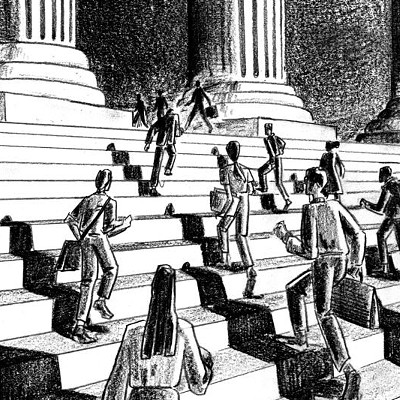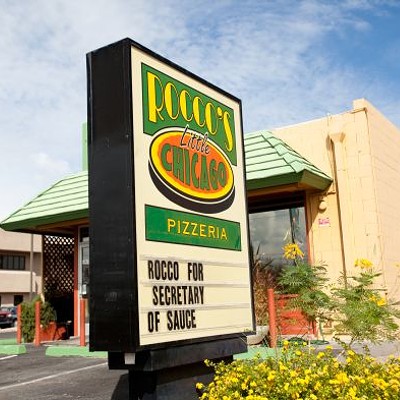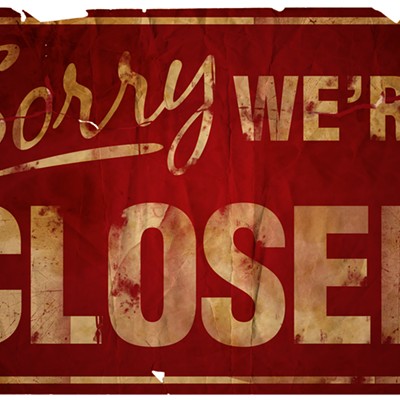At the time, know-it-all gasbag Rush Limbaugh ridiculed that notion and anyone who dared speak or write of it in public. "There is no such thing as oil speculation," he smugly repeated, day after day.
Well, now there is irrefutable evidence that he couldn't have been more wrong ... well, he's probably been more wrong about a great many things, but, at the same time, he was damn sure wrong about this.
Several studies (including many by people in the oil business) now show that it was indeed speculation that fueled the ridiculous rise in the price of a barrel of oil last year. And the bubble only burst when the world's economies went into recession; otherwise, the crooks may very well have sent it skyrocketing even higher than the absurd $150 mark with which it flirted in July.
According to the president of the Petroleum Marketers Association of America (owners of gas stations and businesses that provide heating oil to homes), 70 percent of the oil that was "bought" in the United States in 2008 was done so by speculators who simply bought it on paper and hoped to sell it before they had to actually take delivery of the product. It was done so by people who realized that there was virtually no regulation of the shadowy world of derivatives.
Akin to the calculus procedure, the derivatives in question allow trading in commodities to be manipulated and exploited by those who are able to detect and/or (as in the case of Enron and the fake electricity shortage it created in California) actually create market trends and disruptions.
Derivatives were left unregulated by a Republican Congress, and it didn't take long for shysters to cash in. In 2003, the amount of money spent on derivative-driven trading in the commodity markets by hedge funds, Wall Street banks and institutional investors was $13 billion. In 2008, it was more than $300 billion. And like Fanucci, every time a "trade" went down, somebody got his beak wet.
All the money that poured into those markets could do nothing but raise the price (on paper) of that which was being bought and sold. And so, as the price went up, institutions just sold the same thing back and forth to each other (and sometimes, companies just sold it back and forth in-house). Records now show that in 2008, 27 barrels of oil were traded back and forth each day for every barrel of oil that was actually consumed.
While the price of a barrel of oil was roaring past the $100 mark, oil executives were called before Congress to take a guess as to what was going on. To a man, they all claimed to know nothing about possible speculation in the market, instead spouting (in unison) nonsense about China and India and supply and demand.
At the same time, a memo was circulating around J.P. Morgan corporate headquarters that read, in part, "There was an enormous amount of speculation pent up in energy markets (an eight-fold increase in over-the-counter oil-derivative exposure in the last three years) and it wasn't just the supply-demand equation. ... $140 in July was just ridiculous."
Studies done independently by MIT and the U.S. Department of Energy both concluded that if supply and demand had truly been in effect during the price run-up in the first nine months of last year, the price should have been going down. Department of Energy findings show that in the first two quarters of 2008, supply was up, and demand was down, and yet somehow, the oil market experienced the largest price spike in its history.
The whole crooked enterprise reached a crescendo when, on Sept. 22, the price of a barrel of oil shot up $25 in one day, despite the fact that there was no disruption in supply; the summer driving season was over; and consumer demand was down sharply. That one-day jump pulled the curtain back from the Wizard, and it wasn't long after that that the bubble burst. By Christmas, we were paying $1.45 a gallon, down from more than $4 just a few months earlier.
I hope that the amoral, gutless speculator bastards lose their asses over this. I hope the Obama administration makes it a top priority to install tough regulation of the markets to keep the crooks from stealing us blind. And I wish business schools would stop glossing over ethics with a wink and a smile, and teach people that concepts like right and wrong really do exist.
Lots and lots of people should go to jail for all of this, but they won't. Wall Street needs to learn a lesson from its truly un-American excesses, but it won't. And the average American citizen who works hard, saves what he can and expects only a decent chance deserves to receive fair treatment in the marketplace. But we won't.










